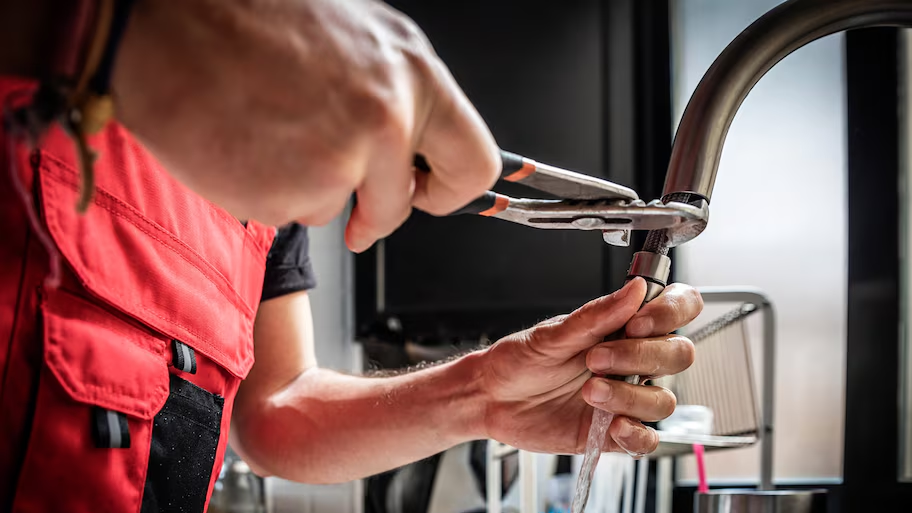Reasons Why It's Essential to Repair a Malfunctioning Faucet
Reasons Why It's Essential to Repair a Malfunctioning Faucet
Blog Article
What are your insights and beliefs about Leaky Faucets: Why They Happen & What to Do About Them?

Trickling taps might seem like a small inconvenience, yet their effect surpasses just the inconvenience of the audio. From wasting water to sustaining unnecessary monetary costs and wellness risks, ignoring a leaking faucet can cause various effects. In this short article, we'll look into why it's critical to address this usual home concern quickly and properly.
Waste of Water
Ecological Impact
Leaking faucets contribute dramatically to water waste. According to the Environmental Protection Agency (EPA), a solitary faucet trickling at one drip per second can squander greater than 3,000 gallons of water annually. This not only strains water sources yet likewise affects communities and wildlife based on them.
Financial Prices
Boosted Water Bills
Past the ecological influence, trickling taps can blow up water bills significantly. The gathered wastage in time equates into greater energy expenditures, which could have been avoided with timely repair services.
Possible Home Damages
In addition, long term dripping can lead to damage to fixtures and surfaces surrounding the faucet. Water accumulation can cause staining, corrosion, and even structural issues if left unattended, resulting in additional repair work costs.
Health Concerns
Mold and Mold Development
The consistent visibility of dampness from a trickling tap produces a suitable atmosphere for mold and mildew and mildew development. These fungis not just jeopardize indoor air quality but also posture wellness dangers, especially for individuals with respiratory system problems or allergic reactions.
Waterborne Illness
Stagnant water in trickling taps can end up being a breeding ground for bacteria and various other microorganisms, enhancing the risk of waterborne conditions. Pollutants such as Legionella germs thrive in stationary water, potentially leading to serious ailments when ingested or inhaled.
Do it yourself vs. Expert Repair
Benefits and drawbacks of DIY Repair
While some might attempt to deal with a leaking faucet themselves, do it yourself repair work come with their very own set of obstacles. Without proper expertise and tools, do it yourself attempts can aggravate the problem or bring about incomplete repairs, lengthening the problem.
Advantages of Hiring an Expert Plumber
Employing a professional plumber makes sure that the underlying cause of the trickling faucet is attended to effectively. Plumbing professionals possess the experience and devices to detect and repair faucet concerns efficiently, conserving time and minimizing the danger of more damage.
Step-by-Step Guide to Dealing With a Dripping Faucet
Tools Needed
Prior to attempting to repair a trickling tap, gather the needed devices, including an adjustable wrench, screwdrivers, substitute components (such as washing machines or cartridges), and plumber's tape.
Common Faucet Issues and Their Solutions
Recognize the type of tap and the details problem causing the drip. Typical problems include worn-out washers, rusty shutoff seats, or defective O-rings. Describe producer instructions or online tutorials for step-by-step support on repair work.
Safety nets
Routine Maintenance Tips
To prevent leaking taps, do regular upkeep such as cleaning aerators, examining for leaks, and replacing damaged components promptly. Additionally, think about installing water-saving devices or upgrading to more efficient fixtures.
Value of Prompt Fixes
Attending to trickling taps as quickly as they're observed stops additional water wastage and potential damage, inevitably conserving both water and cash over time.
Effect On Property Worth
Assumption of Well-Maintained Building
Keeping a property in good condition, consisting of attending to maintenance issues like trickling taps, improves its viewed value and worth amongst prospective purchasers or tenants.
Impact on Resale Value
Characteristics with well-maintained plumbing components, consisting of faucets, command greater resale worths in the real estate market. Addressing trickling faucets can contribute to a favorable perception during residential property evaluations and settlements.
Environmental Obligation
Specific Contribution to Conservation
Taking obligation for repairing trickling faucets straightens with wider initiatives toward water conservation and ecological sustainability. Every individual's activities collectively make a substantial effect on maintaining valuable sources.
Sustainable Living Practices
By focusing on prompt repairs and taking on water-saving routines, individuals contribute to lasting living methods that profit both present and future generations.
Final thought
Addressing a leaking tap exceeds plain ease; it's a vital action toward saving water, reducing monetary prices, and protecting health and wellness and residential or commercial property. Whether via do it yourself repair work or specialist aid, acting to deal with dripping faucets is a tiny yet impactful way to advertise liable stewardship of sources and contribute to a much healthier, much more sustainable future.
How to Fix a Leaky Faucet: Step-by-Step Repair Guide
A leaky faucet may seem like a simple annoyance, but if it's not fixed promptly, that leak could cost hundreds to potentially thousands. From water damage to mold, mildew, and high water bills, even a tiny leak can be catastrophic if left unattended. Damage like this can even affect the overall value of your home, so it's important to take the right approach for leaky faucet repair. You may need the help of a plumber in some cases, but we've got a few tips you can try on how to fix a leaky faucet before calling the pros.
Four Faucet Types
When you're learning how to fix a leaky faucet, the first step is knowing what kind of faucet you're working with! There are four common types.
Cartridge Faucets
Cartridge faucets come in one- or two-handled varieties. In one-handled cartridge faucets, hot and cold water combines in a single cartridge. In the two-handled versions, hot and cold water are controlled separately and mixed in the faucet.
Ball Faucets
Ball faucets have a single lever you push up and down to adjust the pressure and rotate to change the temperature. A slotted metal ball controls the amount of water allowed into the spout.
Compression Washer Faucets
They're the oldest type of faucet, but they're still used in many homes — especially older ones. Compression faucets have two separate handles that, when turned, raise or lower the washer that seals a water valve. This valve stops water from flowing through the faucet when it is turned off.
Disc Faucets
Disc faucets rarely need to be repaired due to their maintenance-free design. The water flow is controlled by two discs — the upper one raises and lowers against a fixed lower disc, creating a watertight seal. If your disc faucet starts leaking, you may need to replace the seals or clean residue buildup from the inlets.
Fixing a Leaky Faucet
Step 1: Turn Off the Water
Whether you're learning how to fix a leaky bathtub faucet or how to fix a leaky kitchen faucet, always turn off the water supply to your working area when you're fixing a leak. The last thing you want is a flood added to your list of things to fix.
Look for the shutoff valves below your sink or around the tub and turn them clockwise to stop the water flow. If your faucet doesn't have shutoff valves, you may need to turn off the water for the whole house. Check to make sure it's off by turning the faucet on. If nothing comes out, you're ready to start the repair.
Step 2: Take Apart the Faucet
How you disassemble your faucet depends on the type of fixture you have. You can use a flathead screwdriver to remove the caps on top of the handle or handles for cartridge and compression faucets. Inside, you should see handle screws. Unscrew these with a screwdriver to remove the handle.
Disc- and ball-style faucets will typically have an inlet screw near the handle, and removing that will reveal the interior of the faucet.
Detach the Valve Stem
For cartridge- and compression-style faucets, you'll see the inner valve stem or cartridge once you remove the faucet handles. If you have a compression faucet, unscrew the brass valve stem. If you have a cartridge faucet, pull out the cartridge. If your cartridge has been in place for a while, it may require some tools or extra force to remove it due to mineral deposits.
Examine and Replace Parts
Once you've removed the parts, check them out to confirm what needs to be replaced. You may see corroded rubber washers, O-rings, stems, or cartridges. On a ball-style faucet, check the seats and springs for damage.
If you need to repair a leaky disc faucet, check the inlet and seals on the lower disc.
Once you determine what parts must be replaced, visit your local hardware store. Bring the damaged parts with you to ensure you can purchase the correct components to replace them.
Clean Valves and Faucet Cavity
If you've removed a stem or cartridge, you may notice mineral buildup in the faucet's threads. Use white vinegar to clean the valve seat by soaking it for a few minutes, then scrub it away with a soft toothbrush and rinse with warm water. You can also clean the interior of the faucet in the same way.
Reassemble the Faucet
Once your faucet is cleaned and the required parts have been replaced, it's time to reassemble it. Put the pieces back together and slowly turn the water supply back on. Doing this slowly is crucial because too much initial water pressure can damage the new hardware you've just installed.
https://homewarranty.firstam.com/blog/how-to-fix-leaky-faucet

As a passionate person who reads on Why It's Important to Fix Leaky Faucets, I imagined sharing that editorial was really useful. In case you enjoyed reading our blog post kindly make sure you remember to pass it around. Thanks for your time spent reading it.
Report this page